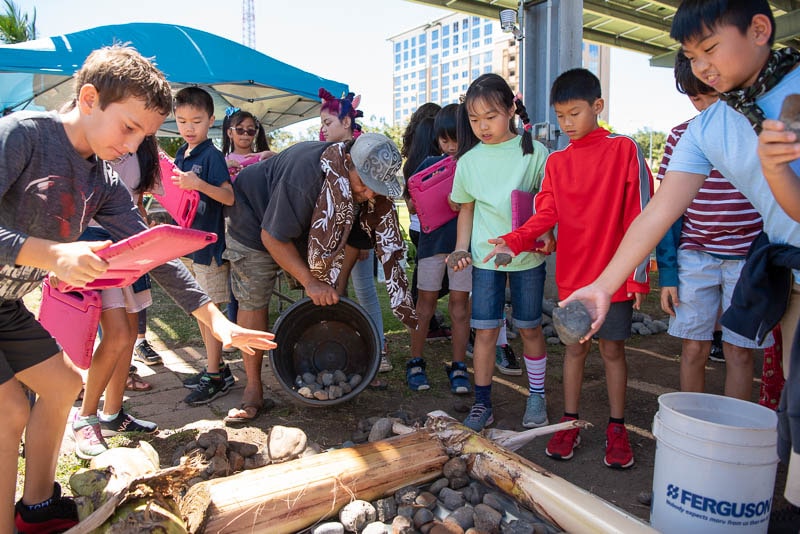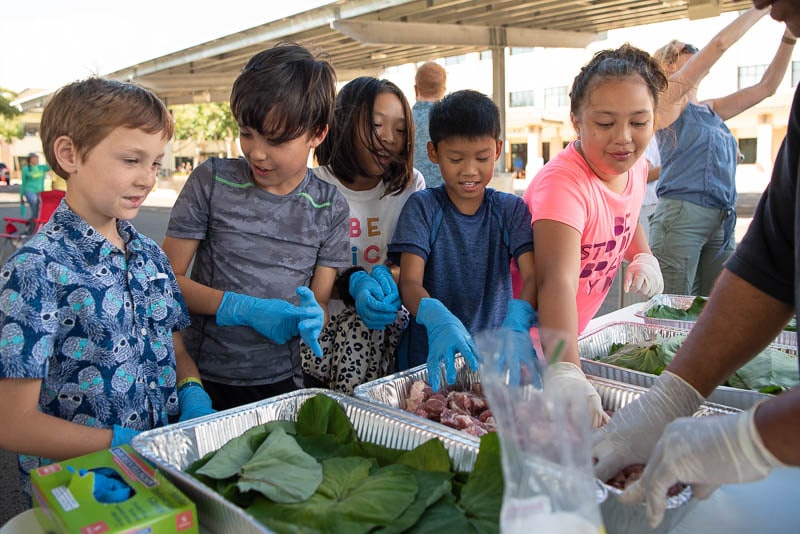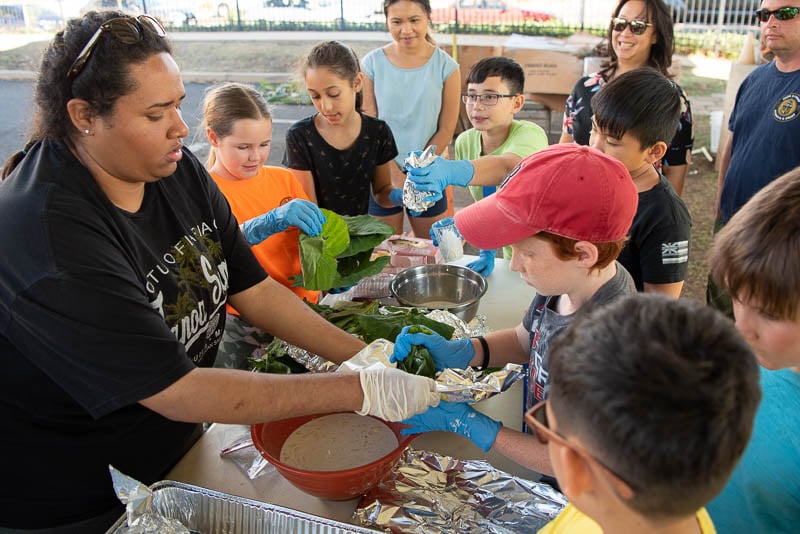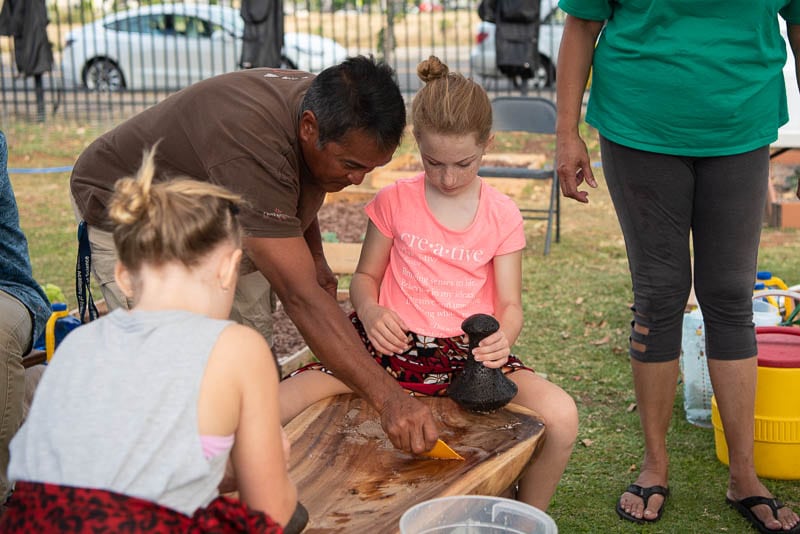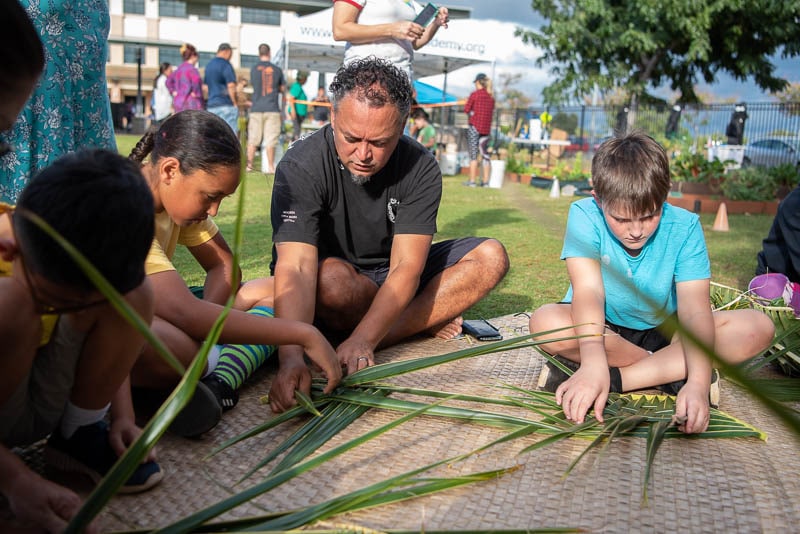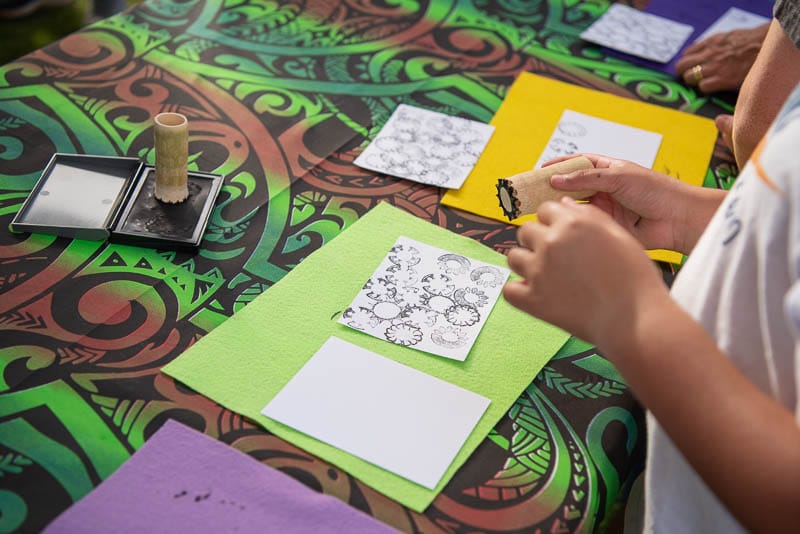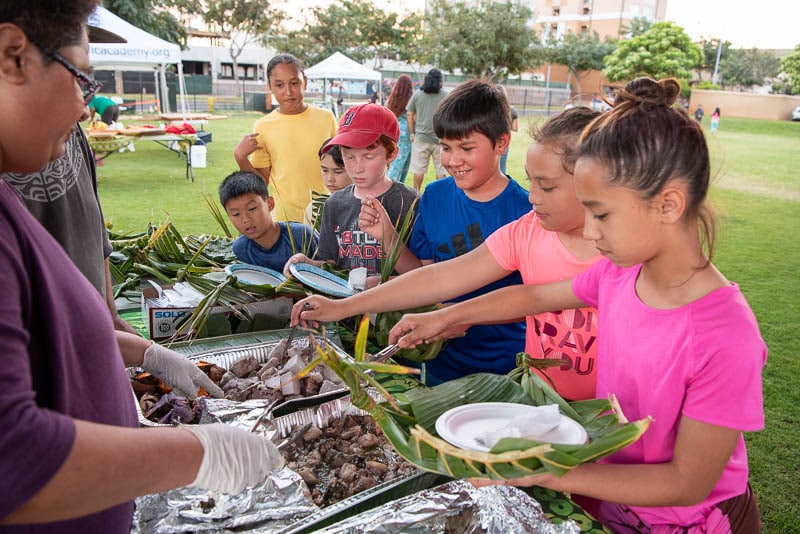It was a day of enhancing knowledge, lā hoʻonui ʻike, for ISLAND PACIFIC ACADEMY’s Grade 4 students on March 11, 2020. As part of their unit of inquiry on Hawaiian history and culture, Grade 4 teachers Sa’o Faulkner and Nicole Ogimi, with the support of Kumu Uʻilani Reynolds, Elementary ʻŌlelo Teacher and Katherine Jones, Elementary Innovation and Sustainability Coordinator, organized a special event to create an opportunity for students to connect theory to practice. It also provided the opportunity to invite the Grade 4 families to join in the learning experience with their children. The result was a wonderful family evening of sharing, learning, community, and connection.
In Hawaiʻi and other Polynesian cultures, children learn important life skills like fishing, planting and harvesting, lei making, and building through hands-on experiences alongside their elders. These authentic learning experiences create lasting knowledge and connections between generations. The Grade 4 students have been learning in class about how Hawaiian and Polynesian societies prepare food, use the natural resources available, and strengthen their social culture through games. At Lā Hoʻonui ‘Ike, the students were able to take what they learned and put it to practice through well-planned activities involving hands-on demonstrations.
Under the guidance of Faulkner’s family (husband, Ashley, and sons Zachary and Mark-Ashley) the students learned how to construct an umu (the above-ground oven used in Samoa) and participated in building it by piling river rocks and kiawe wood within a frame of banana tree stumps. Students also helped prepare the foods to be cooked in the umu, including baked taro and sweet potatoes, palusami (taro leaves with coconut cream), faiʻai pilikaki (canned mackerel with coconut milk), moa (whole chicken), and luau puaʻa (pork with taro leaves). All of the food was generously donated by the Grade 4 parents, and Mrs. Linda Fujikawa and Mouna Farm Arts and Culture Village donated all the banana leaves used for the umu.
At one activity station, Ms. Faulkner’s daughter, Louisa, taught the students how to weave the fronds of the coconut tree to create a maʻilo (coconut leaf plate), which they used later as they sampled the food from the umu. At another station, students and their parents sat on lauhala mats in the field and played kōnane, a Hawaiian board game similar to checkers.
Several Hawaiian cultural practitioners from the community volunteered to share their skills and knowledge with the students. ʻOhe Kāpala practitioner, Nalu Andrade, taught the students and parents about the symbols used in the designs for his ʻohe kāpala (bamboo stamps).
“Nalu really instilled in the students the traditions of this practice and the story behind the designs when he came in to work with the students,” explains Reynolds. “This is bridged by his artwork that he sells for his business, Na Make Kahiko, to share a tradition in a modern time.”
The non-profit organization Hale Pule O Ka ʻOhana O Ke Aloha set up a kuʻi kalo station to teach students how to pound taro to make paʻiʻai. They also taught the students the importance of showing respect to the implements and food they were preparing. All of the papa kuʻi ʻai (boards) and pōhaku kuʻi ʻai (stones) that the students used were handmade by the organization’s members, with the purpose of connecting to their cultural past and practices.
The event was a perfect example of the sharing of knowledge and customs between kupuna and keiki that is a cornerstone in Hawaiian, and Polynesian, cultures.
“The whole experience was an amazing collaboration of teachers and administrators, parents, families, and community members to create an enriching learning experience that incorporated learn-by-doing (ma ka hana ka `ike),” shares Faulkner. “It was a grand experience that brought what we learned in our unit of inquiry to actual hands-on experience.”
“This wonderful event gave our students an opportunity to experience much of what they were learning about in the classroom,” shared Steve Ross, Elementary Principal. “And it was a great community event with students, families, faculty and staff, as well as community partners, joining together for learning, fun, and fellowship.”


